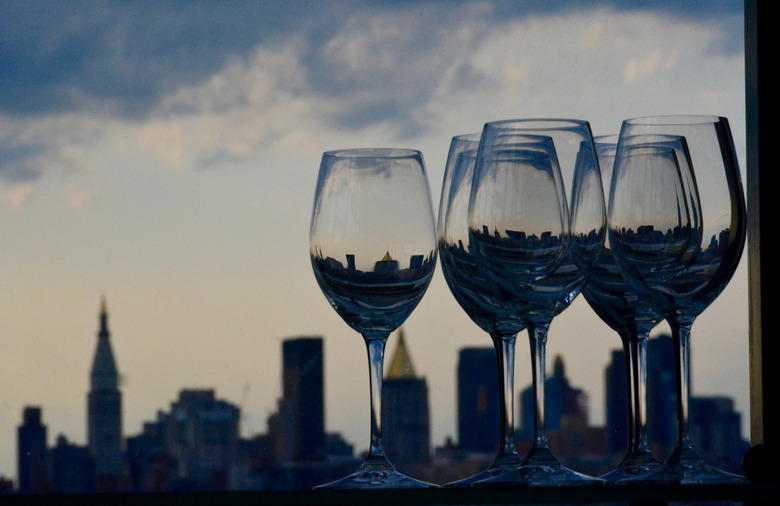Texas Winemakers Show Their Wares In New York City
A dozen or so winemakers from the Texas Hill Country and the High Plains moseyed into New York City's Chelsea neighborhood recently to set up shop for a few hours in Rouge Tomate, whose staff may still be a little hungover from celebrating the restaurant's first Michelin star, awarded in late October. Texas has been making wine since the 1650s, and good (and even sometimes great) wine for more than a quarter century now — but, like other winemaking regions that lie east of the Sierra Nevadas, from Arizona to Maryland, Texas has to keep explaining about the good ones to new wine drinkers and more than a few wine writers.
Although I'm hardly an expert on Texas wines, I've been drinking them since the 1980s, and have visited Hill Country a time or two, so I decided to drop in at the Chelsea tasting, pick up a glass, and get updated. The good news is that I found all the wines I tasted, from 12 different wineries, to be enjoyable and certainly of commercial grade — even the one that had a little Brettanomyces. ("Bret," as it's called in wine circles, lends wine an earthy, musty taste and smell; it can be a kind of litmus test for drinkers, generally considered a character flaw by the uptight and a sign of character by those who are more laid back.) The bad news is that out of the 25 or so wines tasted — I asked each winery to pour me only their best shots — none made me say wow, although a mourvèdre and a tempranillo from Lost Draw Cellars and a chenin blanc from Lewis Wines came close.
The first person I met at the tasting was Chris Brundrett, the "Chris" in William Chris Vineyards (the "William" is his business partner, Bill Blackmon). Brundrett, a tall guy, was wearing a "Don't Mess With Texas" baseball cap, so I chose my words carefully. As he poured me sips of his malbec, tannat, and mourvèdre wines, Brundrett proved to be a rapid-fire talker, often giving me answers even before I asked questions. He says that William Chris is the largest winery in the state that uses only Texas-grown grapes. His mourvèdre, with good fruit and a crisp finish, is made for the restaurant market, he says — a strategy I heard echoed by other Lone Star State winegrowers. As with many non-California wineries, including other Texas properties, the majority of William Chris's bottles are sold in the tasting room.
As I moved from producer to producer, I noted two things: Most wineries produce a large variety of wines, and most of the grapes they grow originated in European regions that are as hot as Texas. "We have a real affinity in Texas for Spanish grapes," says Todd Crowell, winemaker at Spicewood Vineyards. However, Rhône varieties seem to be the favorite among white grapes, especially viognier and roussanne.
Messina Hof, which is now celebrating its 40th anniversary, grows 33 varieties of grapes, according to Karen Bonarrigo, director of both the winery and the winery's four-star villa resort, although many are used to make blends and not sold as single-variety wines.
Other long-timers on the Texas soil are Llano Estacado Winery on the High Plains and Fall Creek Vineyards, located southwest of Austin. In addition to having a higher altitude, the High Plains enjoys a distinct grape-growing difference from the Hill Country: "There are no trees on the plains," says Spicewood Vineyards' Crowell, "so we don't have any problems with birds eating fruit."
Fall Creek, says owner Susan Auler, is an exception to the plant-only-Spanish-grapes school of Texas winegrowers. "When we located here in 1975, we had [California wine legend] André Tchelistcheff as our wine consultant," Auler reports. "He said, 'You must plant Bordeaux varieties here,' and we've been bullish on Bordeaux ever since."
But one of the most refreshing aspects of the Texas taste-down came from Lewis Wines' chenin blanc — California-like in its fragrance, but with a crisp, tangy finish — and its equally refreshing winemaker, Duncan McNabb. "I don't chase trends," McNabb declares. "By the time that you've got things figured out, people have changed their minds and moved on to something else."
